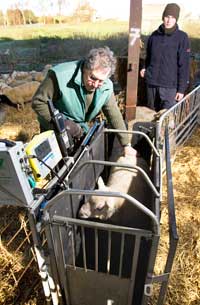EID could provide opportunities says Welsh report

The Welsh sheep industry should capitalise on opportunities arising from compulsory electronic identification, a report has concluded.
The controversial conclusion was reached in a report by the Welsh Assembly‘s rural affairs sub-committee.
The committee report said that greater consumer confidence, through improved traceability, could lead to increased demand and higher premiums for Welsh products as well as improved business efficiency.
“The industry and government must now work together to ensure there is sufficient flexibility within the regulations to optimise the benefits and minimise the impact on Welsh farmers,” the report added.
While the committee acknowledged industry concern over compulsory EID, it suggested that the impact may not be as great as predicted if the necessary education, training and support mechanisms were put in place.
It recommended that the assembly should begin an immediate awareness campaign to dispel apparent widespread confusion by clarifying what would be required under the regulations.
Civil servants and industry support bodies should develop an education and support programme to provide farmers with access to high-quality, consistent information.
Other recommendations included a single standard for equipment and a delay of full implementation until it was as close to 100%
accurate as technically possible and had the confidence of the industry.
The report also backed the introduction of critical read points at markets to reduce costs to individual farmers.
But committee member Brynle Williams continued his total opposition to the introduction of EID from January 2010.
He said that the assembly should ignore the threat of EU fines and block the introduction of a system that was proven to be inaccurate and served no disease control purpose.
